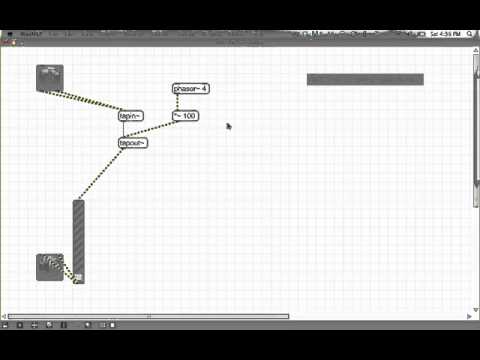Hi everyone,
I am working on building an octaver in MAX using Gen DSP Language. I have gone through a lot of tutorials but I am really not sure where to start with this one. Right now my idea is to take the signal being inputted. Put it through some sort of buffer and then change its pitch, and release the signal.
Would anyone be able to point me in the direction of figuring out what object(s) would let me change the pitch of a signal in Gen
Thanks in advance!
